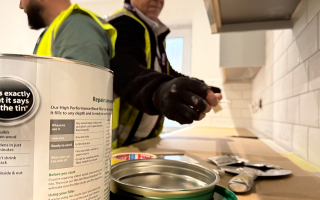
Calls For "Canary Girls" To Be Recognised

A campaign has been launched for the Government to honour people like Nancy Billings.
Nancy was 18 when she started work cleaning and filling shells at a factory in Hereford.
At the peak of its production in 1918, the factory employed around 6,000 staff - 4,000 of whom were women.
In 1942, Nazis bombed the factory, killing 22 people.
Nancy remembers the day of the attack. She told the BBC:
“The aircraft came down so low that you could see the swastika…then the bombs dropped and it was just mayhem. I knew that the others hadn’t got out because we were the only two that ran out”
Unfortunately, Nancy and her friend Betty were the only survivors from the shed in which they had been working.
As well as the obvious danger of bombs, many of the female munitions workers suffered illnesses which later proved fatal, caused by exposure to lyddite and amatol explosives.
The chemicals turned their hair, teeth and skin yellow - earning them the nickname, Canary Girls.
In October 2015, Hereford council was awarded £77,000 to be used to build a memorial to the workers at the factory as a marker of its centenary.
And now more calls are being made to recognise the sacrifice that these women made, and their remarkable contribution to the war effort.









